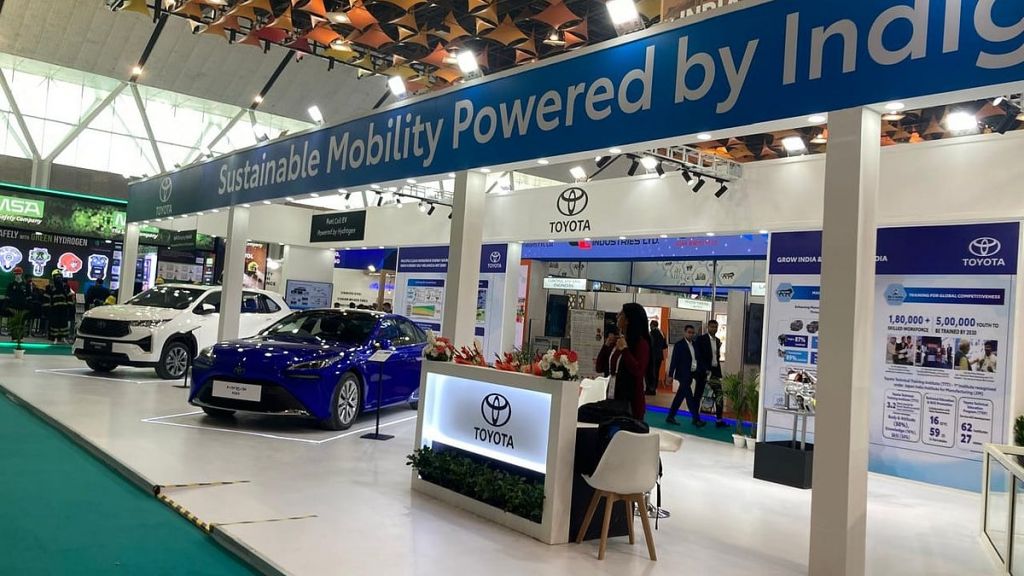
Toyota Kirloskar Motor (TKM) reaffirmed its commitment to India’s clean energy goals by participating in India Energy Week 2025, held in Delhi from February 11 to 14. The event serves as a key platform for global leaders, policymakers, and industry experts to explore sustainable energy solutions. TKM showcased a range of alternative powertrains, emphasizing its multi-pathway approach to reducing carbon emissions and lowering dependence on fossil fuels. With India’s diverse energy landscape and evolving infrastructure, Toyota aims to develop clean mobility technologies that align with the country’s ‘Make in India’ initiative, promoting self-reliance and green transportation.
At India Energy Week 2025, Toyota Kirloskar Motor (TKM) showcased a diverse range of advanced mobility solutions focused on clean energy and reduced carbon emissions. The display included the Toyota Innova Hycross strong hybrid electric vehicle (SHEV), featuring an efficient hybrid system compatible with E20 fuel. Toyota also presented the Prius-based flex-fuel plug-in hybrid electric vehicle (FFV-PHEV), capable of running on 100% ethanol, offering a significant reduction in carbon footprint. The lineup further included an urban battery electric vehicle (BEV) concept with a futuristic design, the hydrogen-powered Mirai fuel cell electric vehicle (FCEV), and a locally manufactured e-Drive system, which serves as a core component for various electrified vehicles.

As India experiences rapid economic growth and rising vehicle sales, the demand for clean mobility solutions is greater than ever. A mix of electrified vehicles and alternative fuel technologies is essential to reduce dependence on fossil fuels. Ethanol, being a locally produced and sustainable energy source, presents a significant opportunity to lower fuel imports, cut carbon emissions, and support economic growth. Increased ethanol usage can benefit farmers by boosting incomes and generating rural employment, while also providing additional government revenue from surplus sugar and grains. Moreover, with the introduction of second-generation ethanol production from agricultural waste like stubble, India can tackle severe air pollution while transforming waste into a valuable resource.
Speaking at the event, Vikram Gulati, Country Head & Executive Vice President - Corporate Affairs and Governance, Toyota Kirloskar Motor, said, “India Energy Week plays a vital role in bringing energy, mobility, and technology players under one common platform, thereby creating awareness and helping to further the cause of clean energy and sustainable mobility. In its pursuit of holistic environmental stewardship, Toyota Global Environmental Challenge 2050 (TEC 2050) was announced in 2015 to address environmental issues like increasing carbon emissions, water shortage, and biodiversity loss. Guided by the principle of creating a net positive impact on the planet and society, TEC 2050 integrates clean energy adoption and strategies to enhance energy efficiency so as to decarbonize plant operations and the entire value chain, going beyond vehicle production”.